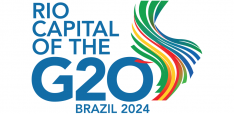Britain’s Residual but Fundamental Global Influence

Alfredo Toro Hardy pushes back against domestic worries over the UK's wanning global influence.
By the end of World War I, British world hegemonic power had practically evaporated. “Pax Britannica” as it was known, made the United Kingdom (U.K.) the undisputed master of the international arena between 1815 and 1914. That is, the period of almost one hundred years situated between the battle of Waterloo or the Congress of Vienna and the beginning of the first of the great wars of the twentieth century. According to Patrick Karl O’Brien: “Between the Treaty of Vienna and the outbreak of First World War, a traditionally anarchic system passed through a century of ‘relative’ stability under a regime referred to as ‘Pax Britannica’” (O’Brien, 2002, p. 9). In 1918, at the end of that catastrophic conflict, Britain was too weakened to retain its preeminent role among nations. The United States (U.S.) was the obvious candidate to take the hegemonic torch from it.
Reluctant Hegemon in waiting
After its bloody and costly Civil War, the U.S. spent the following three decades incorporating and settling its Western frontier. At the beginning of the twentieth century, thus, the U.S. had acquired continental dimensions. Meanwhile, the Industrial Revolution boosted its economy. America’s steel industry, its immense coal and oil resources, and its revolutionary methods of production, compounded by the expansion of its consumer base upped by a huge influx of migrants, was expanding its economy at an exponential rate.
According to Henry Kissinger:
“By 1885, the U.S. had surpassed Great Britain, then considered the world’s major industrial power, in manufacturing output. By the turn of the century, it was consuming more energy than Germany, France, Austria-Hungary, Russia, Japan, and Italy combined. Between the Civil war and the turn of the century, American coal production rose by 800 percent, steel rails by 523 percent, railway track mileage by 567 percent. Immigration contributed to the doubling of the American population” (Kissinger, 1994, p.37).
Meanwhile, innovations in electricity, steam propulsion, hydraulics, and many other fields, were taking place. Within this spiraling trend, the U.S. was transformed into the largest and most dynamic economy of the planet.
America’s involvement in World War I, on the other hand, confirmed the U.S.’ status as a leading global power. By overflowing the war theatre with men, arms, equipment and food, they tipped the scale in favor of the Allied powers. Moreover, President Woodrow Wilson’s participation in the Treaty of Versailles’ negotiations, exhibited the kind of leadership vision lacking in other statesmen. His were the most universal and far-reaching proposals on the table, giving birth to the League of Nations. Indeed, in the last of his famous “Fourteen Points” presented on that occasion, Wilson proposed a “general association of nations”, formed “under specific covenants for the purpose of affording mutual guarantees of political independence and territorial integrity to great and small states alike” (Gaddis, 2019, p. 274).
Nothing would have been more logical than for Washington to be anointed as the world’s hegemon at that point. However, and notwithstanding Wilson’s efforts in that direction, this was an isolationist time for America. As Charles P. Kindelberger argued, the fact that the U.K. was no longer able to hold hegemonic leadership, while the U.S. refused to assume it, created the vacuum under which the 1929 economic recession was able to turn into a long and painful depression (Kindelberger, 1973). However, the emergence of World War II might have also been linked to that vacuum. In Patrick Karl O’Brien words: “Two decades of political instability between 1919 and 1939, when the U.S. appeared as a reluctant hegemon in waiting, were follow by an even more destructive bout of warfare…” (O’Brien, 2002, p. 51).
Inheriting the hegemonic torch
At the end of World War II, the U.S. could no longer abstain -nor was it willing to- from assuming the hegemonic role. As a matter of fact, since 1941 it had played that role among the Allied Powers. Its overwhelming military, economic and technological strengths, and the weight of its convictions regarding liberal democracy, free trade and collective security, naturally drove Washington onto the center stage. Moreover, domestic security began to be seen as directly interlinked with an international environment favorable to the U.S. values and products.
At its inception, instrumenting this hegemonic role required a multilayered process: Promoting the creation of a multilateral system within which the nations of the world could diplomatically work out their differences and where the rules of collective security were laid down; promoting the creation of international financial and trade systems with common rules and procedures; giving birth to a geographically diverse group of multilateral and bilateral security arrangements. From the U.N. to the World Bank, from the International Monetary Fund to the World Trade Organization and GATT, from NATO to AUKUS, from the Rio Treaty to the Japan and the Philippines treaties, America’s hands were everywhere.
The fact that the U.S. had “inherited” the hegemonic torch -albeit with an interlude- from the same the country from which it had inherited language and civilization, had profound implications. This translated into Anglo-centric contents maintaining its dominant position in the world. Nothing similar had been seen in history since the commanding heights of the Greco-Roman civilization. And, even then, the cultural traits involved were not so similar, nor did the Hellenistic world and the Roman one, share a common language.
This kind of continuity allowed Britain to retain a residual level of global influence that, otherwise, would have been extremely difficult to hang onto. According to Andrew Gamble: “After 1945 there was a close collaboration between Britain and the U.S. in rebuilding an international economic and political order” (Gamble, 2002, p. 137). If Germany had succeeded in its attempt of attaining a hegemonic status, in either 1914 or 1939, the U.K. would have been greatly downgraded as a world power. Moreover, Anglo-Saxon values, language, cultural traits, and world views, would have been relegated to a second-rate position. With the “yanks” on top, the “Brits” kept an important degree of relevance. Specially so, as since Churchill’s second premiership in the 1950s, the U.K. choose to become the closest possible partner to the U.S., and its natural intermediary with Continental Europe. In multiple occasions, since then, the U.K. presented itself as a sort of co-pilot within the American led international system.
Two hundred years of Anglo-Saxon preeminence
British influence is also definitively felt around the world in other ways. For example, London shares with New York the leading position among global cities and world financial centers (although Brexit has dented that position). The BBC, The Financial Times and The Economist maintain themselves at the top of the media universe, together with prestigious U.S. media outlets such as Time-Warner-CNN, The New York Times, The Wall Street Journal or The Washington Post. Oxbridge ranks alongside the Ivy League at the zenith of the academic world; Chatham House competes with Brookings for the title of the planet’s most reputable think-tank. Penguin Random House and Palgrave Macmillan are among the top five international publishers. And so on and so forth.
Neither Germany, France, nor China, can aspire to anything similar. They simply lack the kind of “universality” that the Anglo-Saxon world enjoys. The case of Germany, which until not so long ago was the economic locomotive of Europe, speaks by itself. Its media and venerable universities cannot aspire to compete with the Anglo-Saxon ones, remaining to a large extent encapsulated within language barriers. Not surprisingly, to overcome those barriers and to open themselves into an international audience, universities and media from around the world resort to the English language. Seven years ago, in 2017, the number of B.A. degrees offered in English, within Continental Europe, had reached 2,900 (Druckerman, 2019). Meanwhile, when aiming at global coverage, Chinese, Russian or Qatari media outlets have no other option than turning to English.
English, indeed, is the global lingua franca, spoken in airports around the world, as well as the global language of business. But there is more than language itself. Anglo-Saxon content matters. Not surprisingly, one billion people from every corner of the globe follows the Oscar ceremony every year, in the same manner in which two billion people watched the wedding of Prince William and Kate Middleton, and four billion people from around the planet followed Queen Elizabeth II’s funeral.
The U.K. was thus able to retain a degree of global presence and influence (helped of course by its permanent seat at the Security Council), that transcends its hierarchical rank among nations. Britain, indeed, punches above its real weight. More relevant, thought, is the fact that the U. S.’ civilizational imprint did not have to begin afresh. Let us imagine the time that China will need, should it become the new Hegemon, to impose its civilizational traits upon the world. Thousands of years of self-centered and inward looking “universality”, within a “Great Wall mentality”, imposes a huge burden on China’s possibility of giving shape to a Sino-Centric world.
China’s sophisticated and potent civilization, second to none in antiquity and strength, still remains unintelligible for most of the world. Much to the contrary, after two centuries of almost continuous Anglo-Saxon preeminence, its imprint has become familiar in the most remote corners of the planet. This provides the U.K. with a residual but fundamental global presence. When Britain talks, the world listens and understands, and that means power.
Alfredo Toro Hardy, PhD, is a retired Venezuelan career diplomat, scholar and author. Former Ambassador to the U.S., U.K., Spain, Brazil, Ireland, Chile and Singapore. Author or co-author of thirty-six books on international affairs. Former Fulbright Scholar and Visiting Professor at Princeton and Brasilia universities. He is an Honorary Fellow of the Geneva School of Diplomacy and International Relations and a member of the Review Panel of the Rockefeller Foundation Bellagio Center.
Photo by nicholas hatherly
References
Druckerman, Pamela (2019). “Parlez-Vous Anglais?”, The New York Times, August 10.
Gaddis, John Lewis (2019). On Grand Strategy. London: Penguin Books.
Gramble, Andrew (2002). “Hegemony and Decline: Britain and the United States” in O’Brien, Patrick Karl and Clesse, Armand, Editors, Two Hegemonies. Aldershot: Ashgate.
Kindelberger, Charles P. (1973). The World in Depression, 1929-1939. Berkeley: Berkeley University Press.
Kissinger, Henry (1994). Diplomacy. New York: Simon & Schuster. O’Brien, Patrick Karl (2002). “The Pax Britannica and American Hegemony” in O’Brien, Patrick Karl and Clesse, Armand, Editors, Two Hegemonies. Aldershot: Ashgate.


